 W
WAlphonse Gallaud de la Pérouse, better known as Zo d'Axa, was a French adventurer, anti-militarist, satirist, journalist, and founder of two of the most legendary French magazines, L'EnDehors and La Feuille. A descendant of the famous French navigator Jean-François de Galaup, comte de Lapérouse, he was one of the most prominent French individualist anarchists at the turn of the 20th century.
 W
WCéline Bara, née Céline Szumigay, is a French retired pornographic film actress.
 W
WGeorges Albert Maurice Victor Bataille was a French philosopher and intellectual working in philosophy, literature, sociology, anthropology, consumerism, and history of art. His writing, which included essays, novels, and poetry, explored such subjects as erotism, mysticism, surrealism, and transgression. His work would prove influential on subsequent schools of philosophy and social theory, including poststructuralism.
 W
WJean Baudrillard was a French sociologist, philosopher and cultural theorist. He is best known for his analyses of media, contemporary culture, and technological communication, as well as his formulation of concepts such as simulation and hyperreality. He wrote about diverse subjects, including consumerism, gender relations, critique of economy, economics, social history, art, Western foreign policy, and popular culture. Among his best known works are Seduction (1978), Simulacra and Simulation (1981), America (1986), and The Gulf War Did Not Take Place (1991). His work is frequently associated with postmodernism and specifically post-structuralism.
 W
WAnselme Bellegarrigue was a French individualist anarchist. He participated in the French Revolution of 1848, was author and editor of Anarchie, Journal de l'Ordre and Au fait ! Au fait ! Interprétation de l'idée démocratique.
 W
WJoseph Hilaire Pierre René Belloc was an Franco-English writer and historian of the early twentieth century. Belloc was also an orator, poet, sailor, satirist, writer of letters, soldier, and political activist. His Catholic faith had a strong impact on his works.
 W
WLouis Jean Joseph Charles Blanc was a French politician and historian. A socialist who favored reforms, he called for the creation of cooperatives in order to guarantee employment for the urban poor. Although Blanc's ideas of the workers' cooperatives were never realized, his political and social ideas greatly contributed to the development of socialism in France. He wanted the government to encourage co-operatives and replace capitalist enterprises. These co-operatives were to be associations of people who produced together and divided the profit accordingly.
 W
WYves Bonnardel is a French philosopher, essayist and editor, libertarian, egalitarian and antispeciesist activist. He is one of the founding members of the French-language journal Cahiers antispécistes and of the events Veggie Pride, Les Estivales de la question animale and the march to close all slaughterhouses.
 W
WPierre Bourdieu was a French sociologist and public intellectual. Bourdieu's contributions to the sociology of education, the theory of sociology, and sociology of aesthetics have achieved wide influence in several related academic fields. During his academic career he was primarily associated with the School for Advanced Studies in the Social Sciences in Paris and the Collège de France.
 W
WGeorges Butaud was a French individualist anarchist and veganism activist. He advocated naturist anarchism and founded an early vegan restaurant in Paris.
 W
WÉtienne Cabet was a French philosopher and utopian socialist who founded the Icarian movement. Cabet became the most popular socialist advocate of his day, with a special appeal to artisans who were being undercut by factories. Cabet published Voyage en Icarie in French in 1839, in which he proposed replacing capitalist production with workers' cooperatives. Recurrent problems with French officials, led him to emigrate to the United States in 1848. Cabet founded utopian communities in Texas and Illinois, but was again undercut, this time by recurring feuds with his followers.
 W
WAlbert Camus was a French philosopher, author, and journalist. He was awarded the 1957 Nobel Prize in Literature at the age of 44, the second-youngest recipient in history. His works include The Stranger, The Plague, The Myth of Sisyphus, The Fall, and The Rebel.
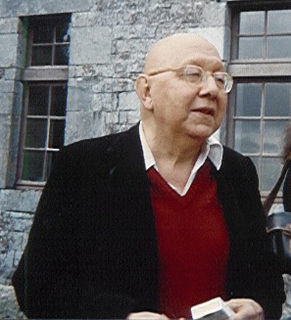 W
WCornelius Castoriadis was a Greek-French philosopher, social critic, economist, psychoanalyst, author of The Imaginary Institution of Society, and co-founder of the Socialisme ou Barbarie group.
 W
WGilles Dauvé is a French political theorist, school teacher, and translator associated with left communism and the contemporary tendency of communization.
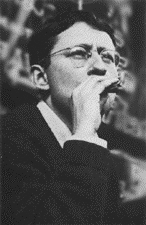 W
WGuy Louis Debord was a French Marxist theorist, philosopher, filmmaker, member of the Letterist International, founder of a Letterist faction, and founding member of the Situationist International. He was also briefly a member of Socialisme ou Barbarie.
 W
WGilles Deleuze was a French philosopher who, from the early 1950s until his death in 1995, wrote on philosophy, literature, film, and fine art. His most popular works were the two volumes of Capitalism and Schizophrenia: Anti-Oedipus (1972) and A Thousand Plateaus (1980), both co-written with psychoanalyst Félix Guattari. His metaphysical treatise Difference and Repetition (1968) is considered by many scholars to be his magnum opus. An important part of Deleuze's oeuvre is devoted to the reading of other philosophers: the Stoics, Leibniz, Hume, Kant, Nietzsche, and Bergson, with particular influence derived from Spinoza. A. W. Moore, citing Bernard Williams's criteria for a great thinker, ranks Deleuze among the "greatest philosophers". Although he once characterized himself as a "pure metaphysician", his work has influenced a variety of disciplines across the humanities, including philosophy, art, and literary theory, as well as movements such as post-structuralism and postmodernism.
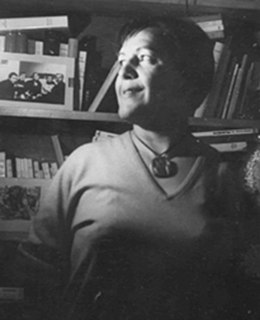 W
WFrançoise d'Eaubonne was a French author and feminist. Her 1974 book Le Féminisme ou la Mort introduced the term ecofeminism. She co-founded the Front homosexuel d'action révolutionnaire, a homosexual revolutionary alliance in Paris.
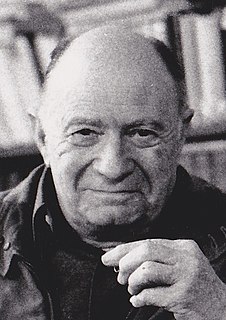 W
WJacques Ellul was a French philosopher, sociologist, lay theologian, and professor who was a noted Christian anarchist. Ellul was a longtime Professor of History and the Sociology of Institutions on the Faculty of Law and Economic Sciences at the University of Bordeaux. A prolific writer, he authored more than 60 books and more than 600 articles over his lifetime, many of which discussed propaganda, the impact of technology on society, and the interaction between religion and politics.
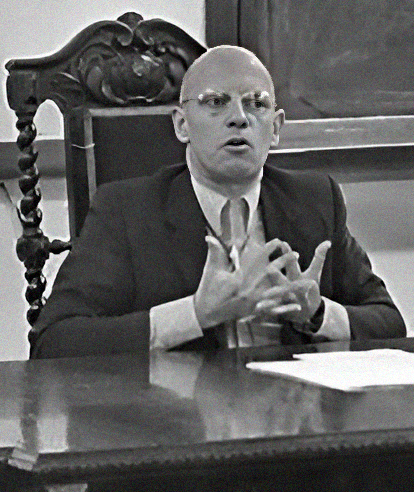 W
WPaul-Michel Foucault was a French philosopher, historian of ideas, writer, political activist, and literary critic.
 W
WPierre-Félix Guattari was a French psychoanalyst, philosopher, semiologist, activist and screenwriter. He co-founded schizoanalysis with Gilles Deleuze, and ecosophy with Arne Næss, and is best known for his collaborations with Deleuze, most notably Anti-Oedipus (1972) and A Thousand Plateaus (1980), the two volumes of Capitalism and Schizophrenia.
 W
WDaniel Guérin was a French anarcho-communist author, best known for his work Anarchism: From Theory to Practice, as well as his collection No Gods No Masters: An Anthology of Anarchism in which he collected writings on the idea and movement it inspired, from the first writings of Max Stirner in the mid-19th century through the first half of the 20th century. He is also known for his opposition to Nazism, fascism, capitalism, imperialism and colonialism, in addition to his support for the Confederación Nacional del Trabajo (CNT) during the Spanish Civil War. His revolutionary defense of free love and homosexuality influenced the development of queer anarchism.
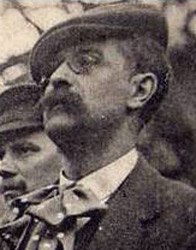 W
WRené de Marmande was a French journalist and anarchist.
 W
WLouise Michel was a teacher and important figure in the Paris Commune. Following her penal transportation to New Caledonia she embraced anarchism. When returning to France she emerged as an important French anarchist and went on speaking tours across Europe. The journalist Brian Doherty has called her the "French grande dame of anarchy." Her use of a black flag at a demonstration in Paris in March 1883 was also the earliest known of what would become known as the anarchy black flag.
 W
WMichel Onfray is a French writer and philosopher. Having a hedonistic, epicurean and atheist world view, he is a highly prolific author on philosophy, having written over 100 books. His philosophy is mainly influenced by such thinkers as Nietzsche, Epicurus, the Cynic and Cyrenaic schools, as well as French materialism.
 W
WPierre-Joseph Proudhon was a French socialist, politician, philosopher, economist and the founder of mutualist philosophy. He was the first person to declare himself an anarchist, using that term, and is widely regarded as one of anarchism's most influential theorists. Proudhon is considered by many to be the "father of anarchism". Proudhon became a member of the French Parliament after the Revolution of 1848, whereafter he referred to himself as a federalist. Proudhon described the liberty he pursued as "the synthesis of communism and property". Some consider his mutualism to be part of individualist anarchism while others regard it to be part of social anarchism.
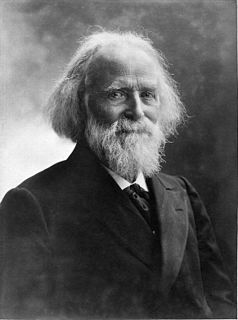 W
WJacques Élisée Reclus was a renowned French geographer, writer and anarchist. He produced his 19-volume masterwork, La Nouvelle Géographie universelle, la terre et les hommes, over a period of nearly 20 years (1875–1894). In 1892 he was awarded the Gold Medal of the Paris Geographical Society for this work, despite having been banished from France because of his political activism.
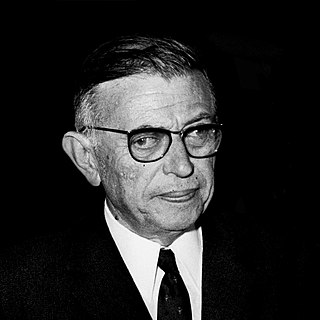 W
WJean-Paul Charles Aymard Sartre was a French philosopher, playwright, novelist, screenwriter, political activist, biographer, and literary critic. He was one of the key figures in the philosophy of existentialism and phenomenology, and one of the leading figures in 20th-century French philosophy and Marxism. His work has also influenced sociology, critical theory, post-colonial theory, and literary studies, and continues to influence these disciplines.
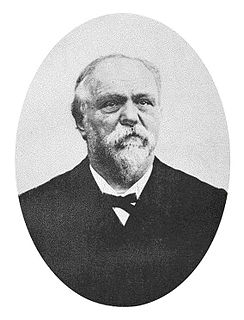 W
WGeorges Eugène Sorel was a French social thinker, political theorist, historian, and later journalist. He has inspired theories and movements grouped under the name of Sorelianism. His social and political philosophy owed much to his reading of Proudhon, Karl Marx, Giambattista Vico, Henri Bergson, and later William James. His notion of the power of myth in collective agency inspired socialists, anarchists, Marxists, and fascists. Together with his defense of violence, it is the contribution for which he is most often remembered.
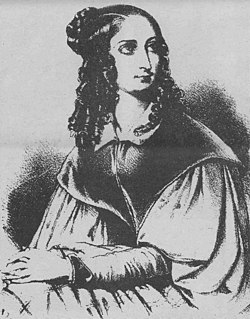 W
WFlore Celestine Thérèse Henriette Tristán y Moscoso better known as Flora Tristan was a French-Peruvian socialist writer and activist. She made important contributions to early feminist theory, and argued that the progress of women's rights was directly related with the progress of the working class. She wrote several works, the best known of which are Peregrinations of a Pariah (1838), Promenades in London (1840), and The Workers' Union (1843).